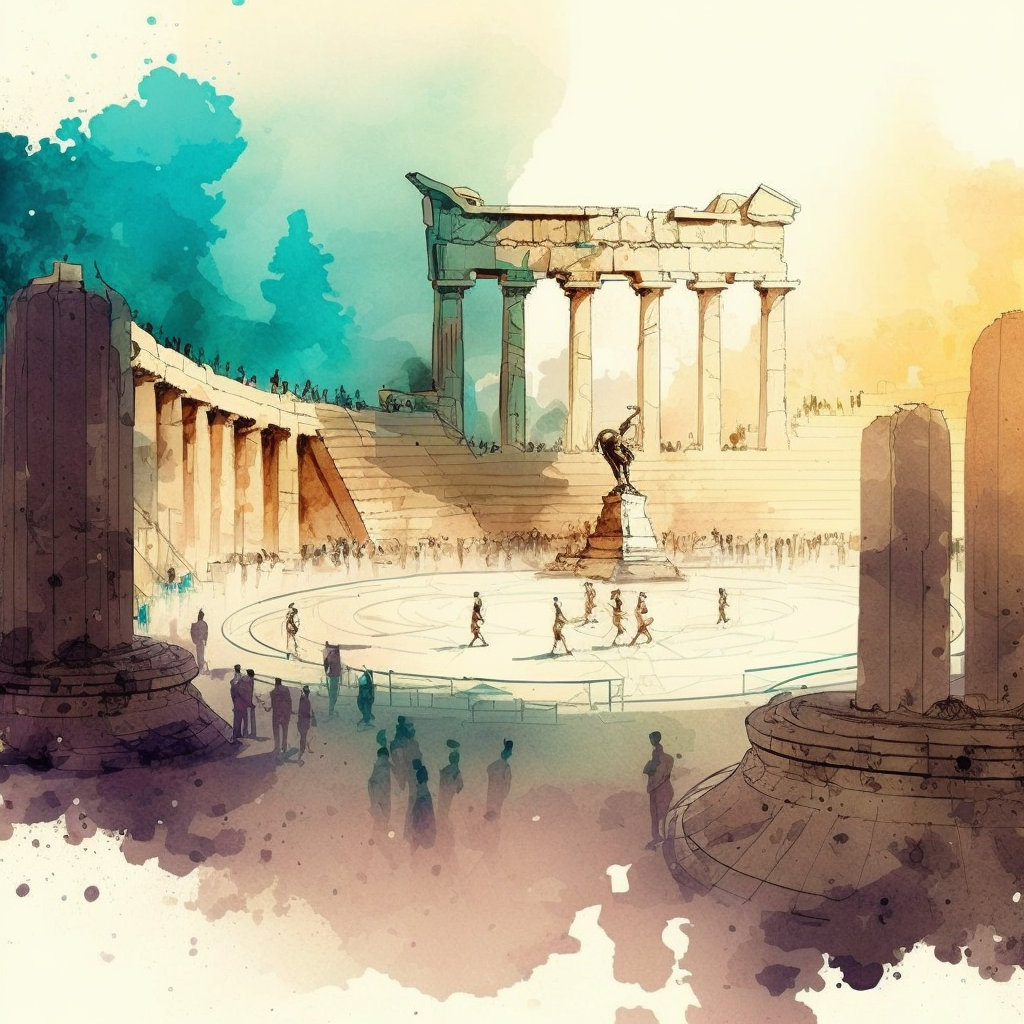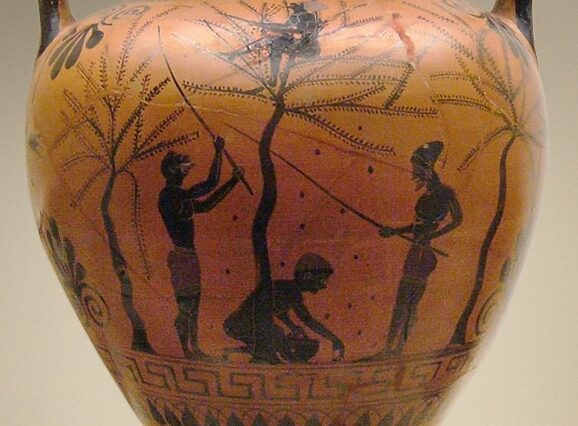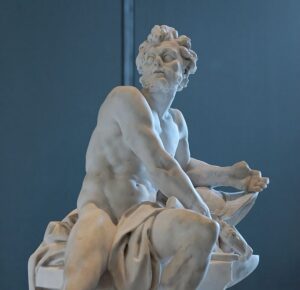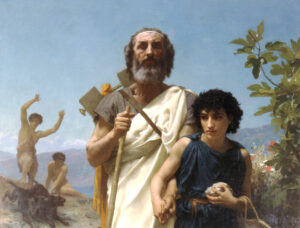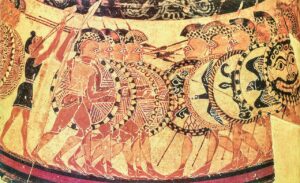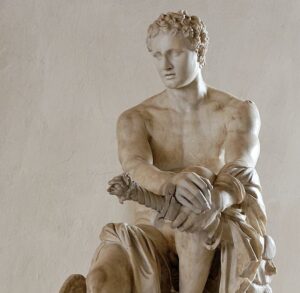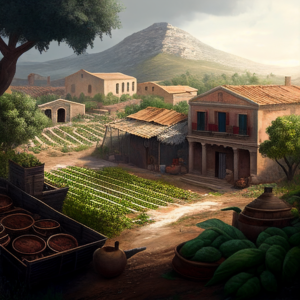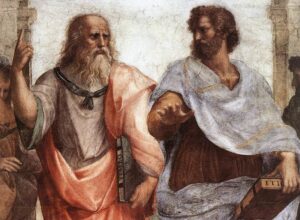Daily life in ancient Greece was shaped by the country’s social structure, religion, and geography. The ancient Greeks lived in a variety of environments, from bustling city-states to small rural villages, and their daily experiences varied accordingly. The most important aspects of daily life in ancient Greece included: the roles of men and women, social classes in ancient Greece, work, education, religion and entertainment.
Men and Women in Ancient Greece
To understand what daily life was like for the people of Ancient Greece it’s first important to understand the different roles of people in Ancient Greek society. For example, daily life in Ancient Greece was very different for people based on a few key factors.
First, men and women had very different experiences in terms of daily life in Ancient Greece. The adult men of Ancient Greece were expected to play a role in the governance of their society. This is because only adult male citizens of Greek city-states, such as Athens, were allowed to participate in the democracy. This means that the women of Greece generally did not have a say in the government at the time. Instead the women of Ancient Greece were expected to take care of the home and their main role centered around being wives and mothers. On the other hand, the men of Ancient Greece worked outside of the home as warriors, artists, craftsmen, etc.
Family life was central to the ancient Greeks, and they placed a high value on their relationships with family members. The head of the household was typically the father, who had complete authority over his wife and children. Women had limited rights and were often confined to the domestic sphere, while men were encouraged to participate in public life.
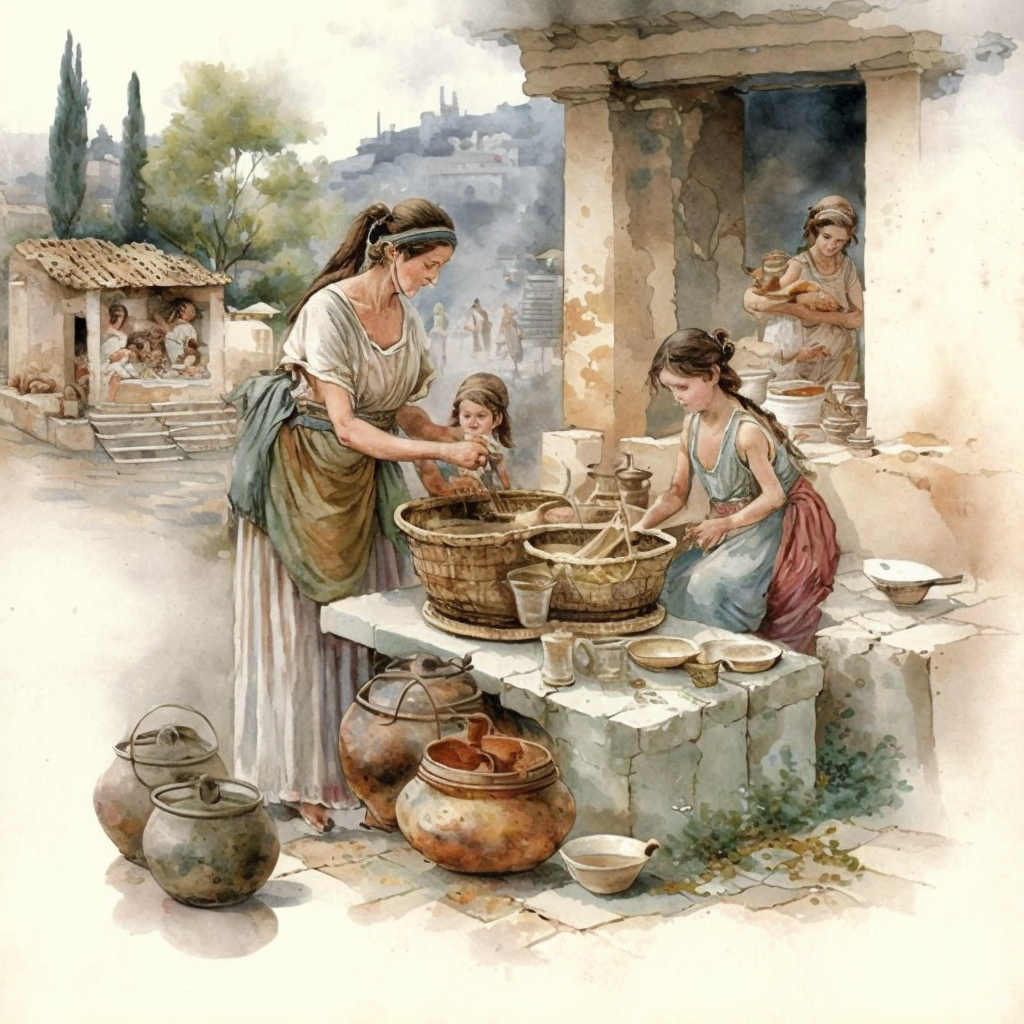
Social Classes in Ancient Greece
Another important aspect of daily life in ancient Greece was the social classes that existed at the time. The social structure in ancient Greece was divided into three classes: citizens, metics (foreigners living in Greece) and slaves. Citizens were the ruling class and controlled the government, metics were foreigners who lived in Greece and had some rights, and slaves were not citizens and had no rights.
Another important factor of daily life in Ancient Greece was slavery. Wealthy households in Ancient Greece often had slaves to help do chores, raise children and other household tasks. Slaves also did manual labor on different worksites such as mines, farms and shops. Slaves in Ancient Greece came from different sources, including foreigners and others who were so poor that they were sold into slavery.
Work in Ancient Greece
Work was an important aspect of daily life in ancient Greece. The majority of the population lived in the countryside and were farmers. They would work in the fields and tend to their crops and livestock. They would also take care of their home and families and would participate in religious festivals and ceremonies.
In the city-states, citizens would engage in trade, politics and various crafts. They were also expected to participate in the assembly, and serve as soldiers and in some cases, as sailors. Ancient Greek soldiers were known as hoplites and were famous for their strategies and tactics, including the phalanx formation. This was a formation in which they stood in rows with their shields overlapping and their spears pointed forward. This formation was designed to protect them and make it difficult for the enemy to break through.
As stated above, slavery was also important to the daily life in ancient Greece. For example, slavery was also an integral part of the ancient Greek economy, and slaves were used for a variety of tasks, including manual labor, household work, and agriculture.
Education in Ancient Greece
Education was also a significant aspect of daily life in ancient Greece. Boys were educated in reading, writing, mathematics, and physical education, while girls were educated at home in domestic skills and management.
Boys typically began their education at the age of 7 and were taught reading, writing, arithmetic, and other basic skills. Education was focused on developing the mind and body, and boys were taught poetry, music, and physical education. Boys from upper-class families were also trained in public speaking, which was an important skill for participation in politics and governance.
Girls were not typically given formal education in ancient Greece, but some upper-class families did provide a basic education for their daughters in reading, writing, and arithmetic.
Higher education in ancient Greece was provided by philosophers and scholars, many of whom had their own schools or academies. The most famous academy in ancient Greece was the Academy of Plato, which focused on the study of philosophy, mathematics, and science.
Religion in Ancient Greece
Religion was also an important aspect of daily life in ancient Greece. The ancient Greeks believed in multiple gods and goddesses and they would often make sacrifices and pray to the gods for help. The most important of these gods and goddesses were the twelve Olympians, which were said to live on Mount Olympus. In fact, Zeus was considered to be the main god of ancient Greek religion and was referred to as the ‘king of the gods’. Religion was also a central aspect of public life, and there were many religious festivals and ceremonies that citizens were expected to participate in.
Entertainment in Ancient Greece
In terms of entertainment, ancient Greeks would engage in sports such as running, jumping, and wrestling. The most famous athletic competition was the Olympic Games, which were held every four years and brought together athletes from all over Greece. Ancient Greek people also enjoyed artistic pursuits such as theater, music, and poetry. They would also attend public gatherings and festivals, where they would engage in various forms of entertainment, including music, dance, and theater performances. These were all important aspects of daily life in ancient Greece.
